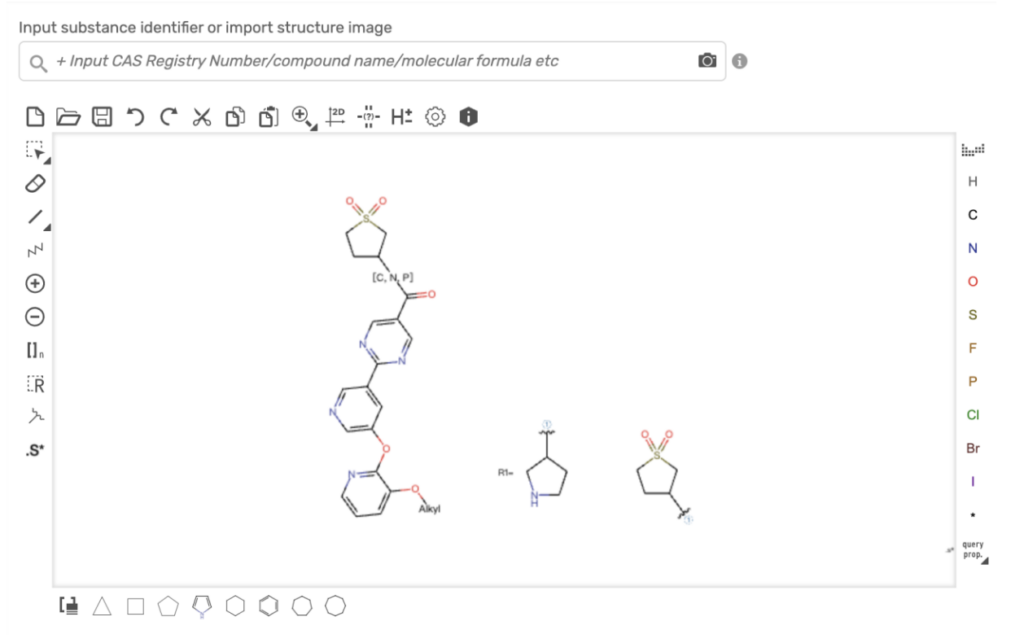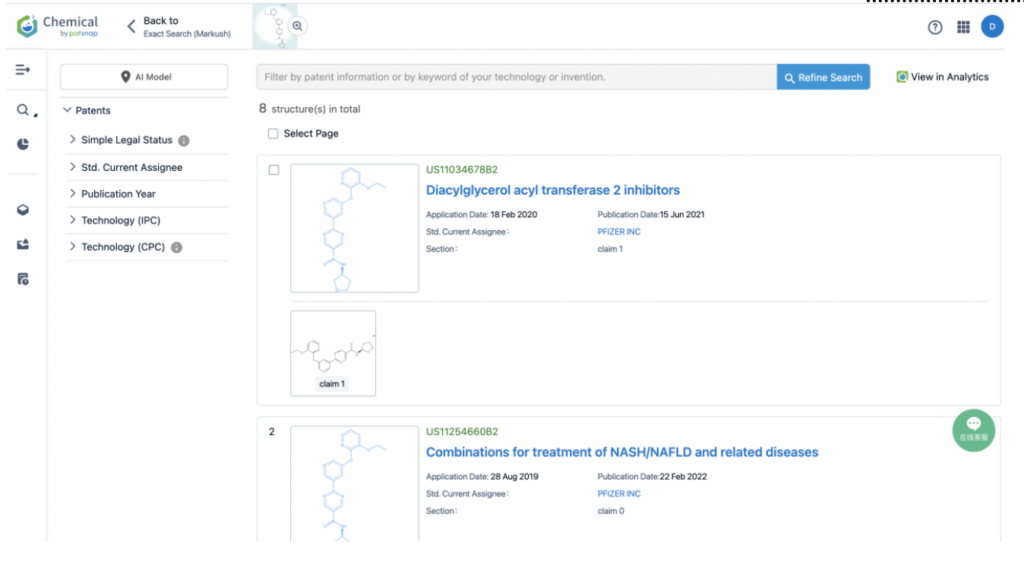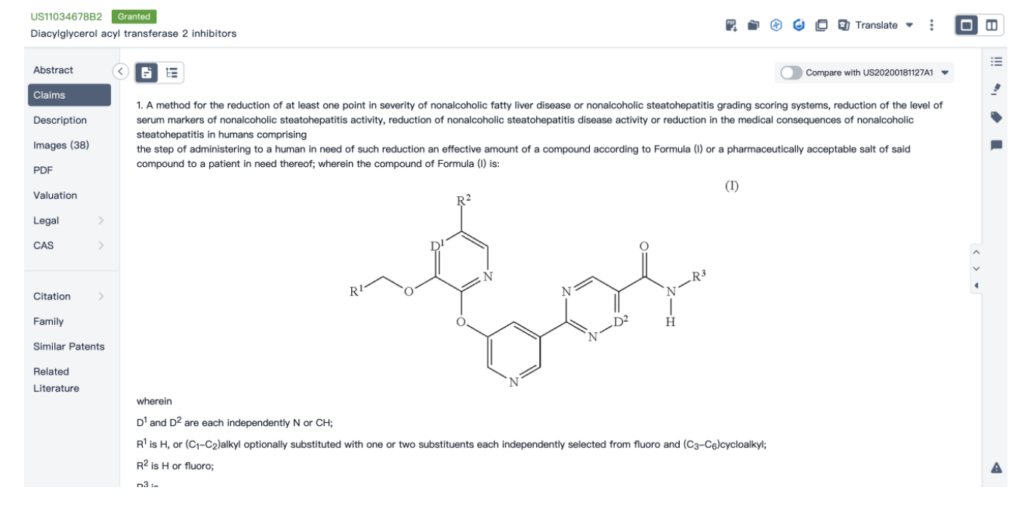Patsnap Upgrades Its AI-Powered Markush Searching
With the ever-increasing number of patents incorporating chemical structures, R&D and IP professionals need to have the right tools at their disposal to quickly search and analyze vast amounts of information.
Markush structures play a vital role in chemical patents as they allow for broad claim coverage of chemical inventions, describing generalized formula that accommodates a vast number, or even an infinite number, of potential compounds that fall within the defined structural framework. This ensures adequate patent protection within the chemical innovation landscape and has substantial implications for various professionals involved in this field such as chemists, chemical engineers, and patent attorneys.
Two Key Advantages of Markush Searching :
1.) Enhancing Patent Protection Scope
Rather than individually listing every possible compound, a Markush structure provides a generalized representation that describes variants and substitutes of structures within a chemical class. This ensures that a broader scope of compounds is protected, even if they were not explicitly mentioned in the patent application, enabling inventors to safeguard their innovations better and prevent others from profiting economically from similar compounds.
Plus, as new compounds or variations emerge, they can still fall under the protection of the Markush claim, preventing competitors from exploiting similar compounds that were not clearly identified at the time of patent filing.
2.) Fostering Innovation and R&D
Markush structures provide an effective method for analyzing and evaluating large chemical spaces, facilitating the identification of patterns, trends, and correlations within the chemical space. This allows researchers to gain insights into compounds’ structural features, functionalities, activities, and applications within specific technological domains to aid in the discovery of new drugs, the development of novel materials, and the emergence of innovative technologies.
The complexity and variability of Markush structures make searching for this data labor-intensive and time-consuming, particularly given the lack of standardized representation formats and notation in patents. Nevertheless, it is imperative for individuals conducting searches in chemical patents to address essential business critical questions, including the determination of freedom to operate.
To address this, Patsnap is proud to unveil its upgraded Markush search functionality to its Chemical platform. Combining state-of-the-art AI algorithms, world-class manual curation, and one of the largest chemical structure databases, Patsnap Chemical provides users with an unparalleled level of precision, efficiency, and accuracy when it comes to connecting chemical structures with patent and non-patent literature.
Patsnap’s Markush Search Capabilities
With the new Markush search, users can now tailor Markush structures for precise structural searches. Here’s how:
- Draw the Markush core in the structure editor and define variable groups for targeted searches, enabling precise or self-referential structure searches.

- Retrieve exact structures matching desired features, assisting researchers in locating target structures for patent analysis within the global patent database.

- Conduct searches for Markush structures and patents using precise structure input and pinpoint claim locations.

Patsnap Chemical’s upgraded Markush search functionality revolutionizes the way that researchers, industry professionals, and legal experts explore, search, and analyze chemical patents. With its advanced capabilities, it empowers users to efficiently navigate the complex landscape of chemical intellectual property and facilitates groundbreaking R&D efforts.
To learn more about Patsnap Chemical, please visit: https://www.patsnap.com/solutions/chemical/